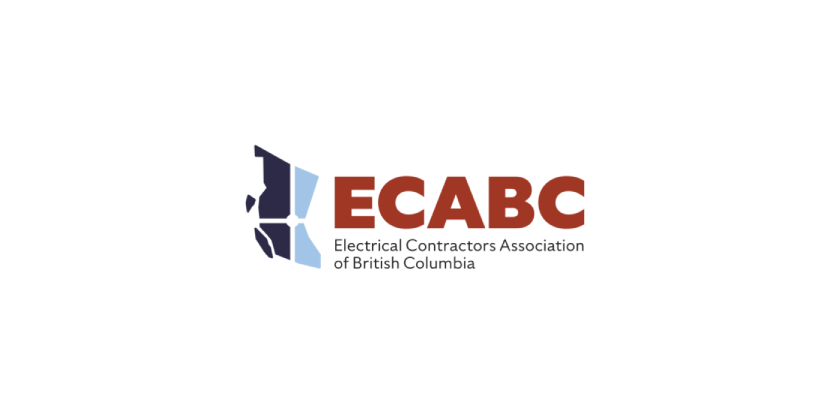ECABC Provides Platform Recommendations to BC Political Parties

September 23, 2024
The Electrical Contractors Association of British Columbia has provided three platform policy recommendations to each of BC’s major political parties in advance of the October 19, 2024 provincial election: implementing prompt payment legislation, increasing capital and operating funding to support electrical apprentices, and naming a Minister responsible for construction in their Cabinet.
The province’s need for electrical and line utility contractors, and the businesses that support them, has never been greater – 2023 was the busiest year on record for ECABC contractors and 2024 is on track to exceed last year’s mark. ECABC’s members are essential contributors to the construction and maintenance of hospitals, housing, power generation and transmission, public transit, industry sites, transportation infrastructure, and more. Implementing the following three policy recommendations will help ensure the electrical industry’s continued success in delivering these integral services.
“It is important that the next provincial government understands the actions they can take to ensure the electrical industry is best positioned to act on British Columbians’ priorities,” said Matt MacInnis, ECABC President. “Trade contractors have waited far too long for prompt payment legislation, which has become standard across the country. ECABC is calling on all parties to commit to prompt payment legislation during the first Legislative session after the election.”
- Prompt payment legislation: Prompt payment legislation, which was first introduced in Ontario in 2017, mandates payment timelines on construction projects and provides an adjudication system to resolve disputes faster and with fewer legal costs. Contractors regularly wait more than three months to be paid for invoiced work, while having to continue to make payroll and pay supplier invoices. These unnecessary payment delays and uncertainty result in contractors building additional risk into their bids, unnecessarily inflating the cost of construction.
Prompt payment legislation is supported by dozens of industry associations and construction labour organizations, and is regularly a recommendation in the Select Standing Committee on Finance’s annual Budget Consultation report.
- Increased funding for apprenticeship training: Electrical and line utility contractors are experiencing a shortage of electrical apprentices and journeypersons. New resources are required to ensure BC has the skilled workers needed to build the infrastructure communities rely on. There has been no increase in the number of BC electrical apprentices graduating to journeyperson status between 2021 and 2023. The lack of available spaces in training institutions is a significant barrier to apprentices progressing to completion.
- Appointed government representation: ECABC’s third recommendation is for the next Premier to appoint a Minister responsible for the construction sector. The lack of a lead construction ministry has slowed progress in enacting policies and legislation that supports projects once shovels are in the ground. The construction industry, which contributes approximately 10 per cent of BC’s GDP, should have the same level of attention from the provincial government as other sectors.
ECABC is a non-partisan industry association that does not endorse candidates or parties as an organization.






![Guide to the Canadian Electrical Code, Part 1[i], 26th Edition– A Road Map: Section 56](https://electricalindustry.ca/wp-content/uploads/2022/11/Guide-CE-Code-2-768x432.png)



![Guide to the Canadian Electrical Code, Part 1[i], 26th Edition– A Road Map: Section 56](https://electricalindustry.ca/wp-content/uploads/2022/11/Guide-CE-Code-2.png)



